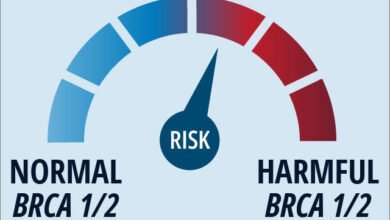Smoking History and Habits May Increase Bladder Cancer Recurrence Risk, Study Finds

Patients with non-muscle invasive bladder cancer who have smoked or currently smoke may have an increased risk of disease recurrence, according to recent study results.
Marilyn L. Kwan, lead author on the study and senior research scientist in the division of research at Kaiser Permanente in Oakland, California, explained that tobacco is a known risk factor for developing bladder cancer, as it accounts for up to 50% of diagnoses. However, the role of tobacco smoking on bladder cancer prognosis is unclear.
She and other researchers sought to evaluate this association in a population of 1,472 patients with non-muscle invasive bladder cancer 2.3 months after diagnosis.
This included patients who were former smokers (874 patients; 59.4%), current cigarette smokers (111 patients; 7.5%), smoke pipes or cigars only (67 patients; 13.7%), e-cigarettes (65 patients; 4.4%) or used marijuana (363 patients; 24.7%).
Results – which were published in the journal JAMA Network Open — demonstrated that longer cigarette smoking duration and more pack-years were associated with a higher risk of recurrence. The highest risk was found in patients who had smoked for 40 or more years or 40 or more pack years.
Kwan explained that tobacco and nicotine are carcinogens (a substance capable of causing cancer in living tissue) which can remain in the urine of the bladder and can continue to play a role even after effective treatment while a person is in survivorship.
“What this means for patients is that indeed, cigarette smoking is a critical exposure for patients, (and) prior smoking can influence your risk of recurrence of bladder cancer,” Kwan said in an interview with CURE®. “And it’s important if you are current smoker at the time of your diagnosis of non-muscle invasive bladder cancer to really consider seriously to stop smoking. As … smoking continues to play a role in in your health outcomes as a bladder cancer survivor.”
While researchers did see an association between duration of cigarette use and a higher pack-year history and recurrence risk, there was no association of having ever smoked, being a former or current cigarette smoker and years since quitting smoking. Additionally, no association with smoking pipes, cigars, e-cigarettes or marijuana were found.
Moreover, 102 patients were offered smoking cessation interventions, and 57 went on to receive it after diagnosis. Female patients were more likely to engage in such interventions than male (76.7% versus 44.7%, respectively).
Kwan is hopeful that the results of this study will lend more support to urologists who treat patients with bladder cancer as another piece of evidence of why current smokers should quit.
“The main takeaway is that one, tobacco smoking is a modifiable behavior in patients (and) that if you are a current smoker and (were) just diagnosed with bladder cancer (you) really seriously (should) consider quitting smoking,” she concluded. “This will most likely improve your health outcomes as a survivor of non-muscle invasive bladder cancer.”
For more news on cancer updates, research and education, don’t forget to subscribe to CURE®’s newsletters here.
Source link
#Smoking #History #Habits #Increase #Bladder #Cancer #Recurrence #Risk #Study #Finds



